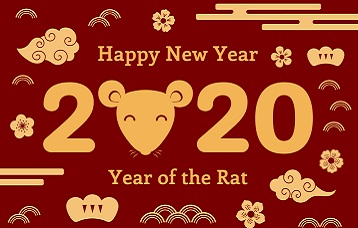By nature, we’ve all had the opportunity to manage projects at some point in life in both a work and leisurely environment. The surprise birthday party you arranged for a friend last month, the baby shower you co-hosted in the spring, the dinner party you catered in the fall, the book club you planned the previous week, the gingerbread house you constructed with your nieces and nephews over the holidays, the new product that you released to the market at the end of the year, etc. These are all considered projects. A project, as defined by the Project Management Institute, is a temporary endeavor undertaken to create a unique product, service or result. Whether or not you officially have the title appended to your name or have formal project management training, we can all consider ourselves to be project managers.
Projects come in various shapes and forms – some larger in scope than others. Some have five tasks, while others have 105 tasks. Regardless of the size of the project, I’ve always found that approaching a project with a smaller, more targeted mindset has its benefits. And knowing it’s a temporary endeavor makes it that much easier to process. Here are some reasons why you should start thinking small rather than large. As a project manager, you’ll:
Know that each of your projects is finite. Whether a six day, six week or six month endeavor, you can take comfort in the idea that each project – no matter how long or how short – is finite. Knowing that there is a definitive beginning, middle and end can give you a vote of confidence that there will always be some light at the end of the tunnel. Whether or not the light is shining bright, diffused by a cloud of haze or barely faint, tasks of various sizes and scales just seem a little less daunting knowing that you could temporarily get your hands and feet wet, and expose yourself to something new.
Have a greater likelihood of trying something new. In any career, it’s important to be curious, exploratory and inquisitive. Since each project is a unique endeavor, you can take the reins on a number of different type of projects without making a full-time career of it. Contributing to a blog post or newsletter, putting together a company event, managing a campaign or designing a new brochure are all ways you can test the waters and try something new. If you’ve got some spare time, partner with different teams within your organization to take on a mini project or walk a day in someone else’s shoes. Several companies encourage cross-pollination and even allow you to allocate a percentage of your work hours to developing yourself professionally and learning new skills.
Acquire new skill sets. By taking on new projects, you’ll diversify your interests and expose yourself to new ideas, learnings and skillsets. There is no “one size fits all” bill when it comes to project management and rarely will you find yourself doing the same thing day in and day out. If you do find yourself swaying in that direction, take a step back and ask yourself a few questions. Is this the best course of action for this particular project? Is there a more optimal solution that can benefit the team and the dynamics of the project? Are there resources the team can leverage that will influence the project and the team’s response?
Become more flexible, adaptable and open-minded. Broadening your skillset and applying those ideas to your projects enhances your decision-making tactics. You’ll uncover more ways to approach a problem or a situation. You’ll find opportunities in the face of challenges. You’ll draw from past experiences and learnings. And you’ll be more fluid in your responses as your experience threshold increases.
Figure out what you do and don’t like. If you find yourself running into walls or don’t like a project you recently took on, you can at least say you’ve worked your way through it and tried it once. Especially for those who are still figuring out their calling, you’ll want to get hands on with as many projects as you can. Knowing what you do and don’t like, and your threshold for tolerating them gives you an advantage for deciding what to pursue in your career.
Thinking small will help you manage the tasks at hand and will ultimately support you in making subtle advances to your project goals, so one day you could project manage the Titanic.







Follow Me